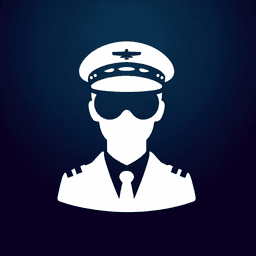
Pilot Definition and Examples: Understanding the Role and Responsibilities
February 27, 2025
Pilot
In maritime contexts, a pilot is a highly skilled mariner who is responsible for navigating ships through challenging or congested waters, such as harbors, rivers, or canals. Pilots possess extensive local knowledge of the waterways, including tides, currents, depths, and potential hazards, which is crucial for ensuring the safe passage of vessels.
Pilots are typically required to board the vessel from a pilot boat, often in difficult sea conditions, to guide the ship safely to its destination. They work closely with the ship's captain and crew, providing expert advice and direction to maneuver the vessel through the specific maritime environment.
The role of a pilot is critical in preventing maritime accidents and ensuring the efficient flow of maritime traffic. Pilots are often mandated by law in many ports around the world, and their services are essential for the safe and effective operation of shipping activities.
In addition to their navigational duties, pilots may also assist in coordinating with port authorities and other maritime services to facilitate smooth docking and departure procedures.
Understanding the Role of a Maritime Pilot
A maritime pilot, also known as a marine pilot, harbor pilot, or ship pilot, is a highly skilled mariner who guides ships through dangerous or congested waters, such as harbors or river mouths. These pilots possess extensive knowledge of local waterways, including depths, currents, and potential hazards, which is crucial for the safe navigation of vessels.
What Does 'Pilot' Mean in Maritime?
In the maritime context, a pilot is not a member of the ship's crew but is an expert who temporarily joins the vessel to assist in its navigation. Their primary role is to ensure the safe passage of ships by providing expert advice to the ship's captain, especially in challenging areas.
Can a Boat Captain Be Called a Pilot?
While both a boat captain and a pilot are involved in the navigation of vessels, their roles are distinct. A captain is responsible for the overall command of the ship and its crew, whereas a pilot is specifically tasked with guiding the ship through particular areas where local knowledge is essential.
What is Pilotage in Maritime Law?
Pilotage refers to the act of navigating a vessel through challenging waters with the assistance of a pilot. According to maritime law, pilotage is a critical safety measure that involves the pilot acting as an advisor to the ship's master, utilizing their expertise in local waters to prevent accidents and ensure safe passage.
What is a Pilot in Naval Terms?
In naval terms, a pilot is often associated with aviation, referring to a naval aviator. However, in the maritime context, a pilot is a specialist in ship navigation, distinct from aviation roles.
Maritime pilots play a vital role in global trade and safety, ensuring that ships can navigate complex waterways efficiently and without incident. Their expertise is indispensable in maintaining the smooth operation of maritime logistics and protecting the marine environment.




